Memorable Performances
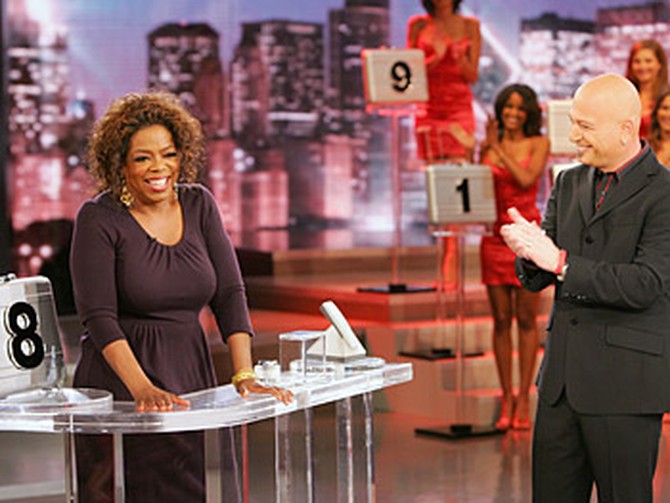
Since Oprah played the hugely popular game Deal or No Deal on her show, she hasn't been able to sleep!
In the game, Oprah chose case number 8, hoping it would hold $100,000 for a lucky audience member. As she eliminated the cases one by one, Oprah turned down all the banker's offers—even one for $50,000! At the end of the game, Oprah discovered her case held only $5,000…but thanks to Hershey's, an audience member still went home with $100,000!
Even though the game had a happy ending, Oprah is still kicking herself for some of the choices she made. "I wake up in the middle of the night and think, 'I should've picked 11. I should've picked 11. I should've done the deal at $50,000. I should've done the deal at $50,000. Why didn't I do the deal at $50,000?" Oprah says. "I've been driving everybody crazy with it."
In the game, Oprah chose case number 8, hoping it would hold $100,000 for a lucky audience member. As she eliminated the cases one by one, Oprah turned down all the banker's offers—even one for $50,000! At the end of the game, Oprah discovered her case held only $5,000…but thanks to Hershey's, an audience member still went home with $100,000!
Even though the game had a happy ending, Oprah is still kicking herself for some of the choices she made. "I wake up in the middle of the night and think, 'I should've picked 11. I should've picked 11. I should've done the deal at $50,000. I should've done the deal at $50,000. Why didn't I do the deal at $50,000?" Oprah says. "I've been driving everybody crazy with it."
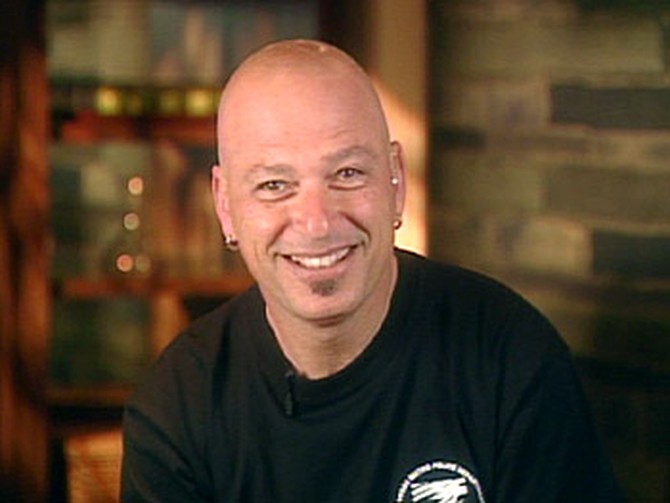
Deal or No Deal host Howie Mandel talks to Oprah via satellite to help her get over her Monday morning quarterbacking. "So the point is that you're having me back on to tell me it's all my fault," Howie jokes.
Oprah says one part of the game that is bothering her is that when she had two cases left, Howie didn't ask her if she wanted to keep her own case or switch, as he does on the primetime show. "The answer is, I don't know why I didn't," Howie says.
Oprah's two major regrets are choosing case number 8, instead of her favorite number 11, and rejecting the banker's offer of $50,000. She says she didn't choose 11 because she saw two other people win big money on the show with case number 8. "I can't speak to the fact that you picked number 8. … There isn't a favorite case. It's all random. Don't know why you did that. You're going to have to live with that," Howie says.
"But I will say the fact that you didn't take the $50,000 and the fact that you played on is what makes you you and what makes you a winner," he says. "The people that are winners in this life are the people that just go for it and chase their dreams and don't see the negative possibilities in taking one step forward. That's what you did. You went for it. You went for the dream. … You wouldn't be as successful as you are and who you are if you weren't the kind of person that went all the way."
"I thank you for that," Oprah says.
Oprah says one part of the game that is bothering her is that when she had two cases left, Howie didn't ask her if she wanted to keep her own case or switch, as he does on the primetime show. "The answer is, I don't know why I didn't," Howie says.
Oprah's two major regrets are choosing case number 8, instead of her favorite number 11, and rejecting the banker's offer of $50,000. She says she didn't choose 11 because she saw two other people win big money on the show with case number 8. "I can't speak to the fact that you picked number 8. … There isn't a favorite case. It's all random. Don't know why you did that. You're going to have to live with that," Howie says.
"But I will say the fact that you didn't take the $50,000 and the fact that you played on is what makes you you and what makes you a winner," he says. "The people that are winners in this life are the people that just go for it and chase their dreams and don't see the negative possibilities in taking one step forward. That's what you did. You went for it. You went for the dream. … You wouldn't be as successful as you are and who you are if you weren't the kind of person that went all the way."
"I thank you for that," Oprah says.
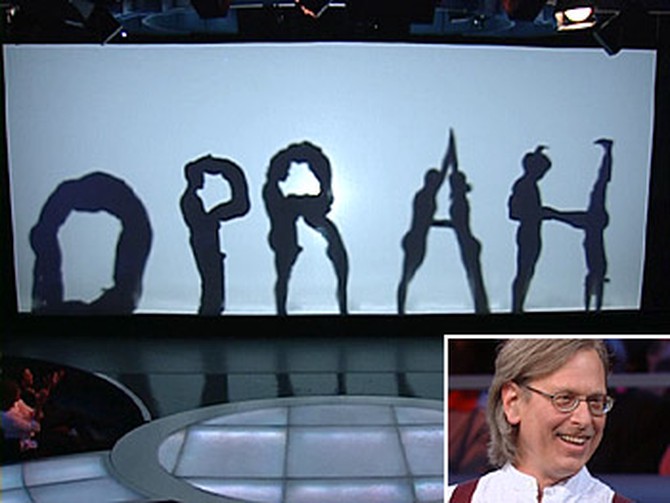
More than a billion people tuned in to the 79th Annual Academy Awards® to see who would walk away with a golden statuette. The Kodak Theatre was filled with Hollywood's biggest stars, but 12 unknown performers stole the show!
Throughout the show, dancers from Pilobolus tumbled across the stage, recreating scenes from Oscar-nominated movies. They didn't need elaborate sets or props—these men and women contorted and twisted their bodies into everything from a Volkswagen bus to a pistol!
"That was my favorite part of the Oscars," Oprah says.
For their big night, Pilobolus prepared many movie scenes…some that never made it on air. Now, they are sharing those scenes—plus a special Oprah tribute—for the first time!
Watch Pilobolus's exclusive performance!
Jonathan Wolken, the co-artistic director and one of the founders of Pilobolus, says performing at the Academy Awards was astounding. "A lot of people have seen us [perform], but more people saw us in [that] one night than in our entire on-stage history," he says.
Throughout the show, dancers from Pilobolus tumbled across the stage, recreating scenes from Oscar-nominated movies. They didn't need elaborate sets or props—these men and women contorted and twisted their bodies into everything from a Volkswagen bus to a pistol!
"That was my favorite part of the Oscars," Oprah says.
For their big night, Pilobolus prepared many movie scenes…some that never made it on air. Now, they are sharing those scenes—plus a special Oprah tribute—for the first time!
Watch Pilobolus's exclusive performance!
Jonathan Wolken, the co-artistic director and one of the founders of Pilobolus, says performing at the Academy Awards was astounding. "A lot of people have seen us [perform], but more people saw us in [that] one night than in our entire on-stage history," he says.

Founded at Dartmouth College in 1971, Pilobolus is mainly a dance company that stages performances in front of a screen, but they also specialize in shadow work. Jonathan and his creative team invite Oprah's cameras backstage for an exclusive look at how they make their magic.
Their special assignment is to recreate an image of Oprah's cocker spaniel, Sophie, on stage. First, they study video of Sophie's every move. Then, they look at pictures and sketch the outline of her body. "It's kind of almost controlled chaos," Jonathan says. "Everybody has ideas about how to do things."
Using physics, precise timing and incredible strength, the dancers attempt to bend and shape their bodies into Sophie's image. A powerful light casts their shadows against a large white screen…and there's no room for modesty. "Sometimes you just don't want any clothes interfering at all, so you take them off," Jonathan says. "Nobody knows what's happening back there. We could all be naked!"
Watch Sophie come to life on stage.
"That is amazing!" Oprah says. "Thank you so much. Sophie's been sick and so that's really great—what a great tribute to her."
Their special assignment is to recreate an image of Oprah's cocker spaniel, Sophie, on stage. First, they study video of Sophie's every move. Then, they look at pictures and sketch the outline of her body. "It's kind of almost controlled chaos," Jonathan says. "Everybody has ideas about how to do things."
Using physics, precise timing and incredible strength, the dancers attempt to bend and shape their bodies into Sophie's image. A powerful light casts their shadows against a large white screen…and there's no room for modesty. "Sometimes you just don't want any clothes interfering at all, so you take them off," Jonathan says. "Nobody knows what's happening back there. We could all be naked!"
Watch Sophie come to life on stage.
"That is amazing!" Oprah says. "Thank you so much. Sophie's been sick and so that's really great—what a great tribute to her."
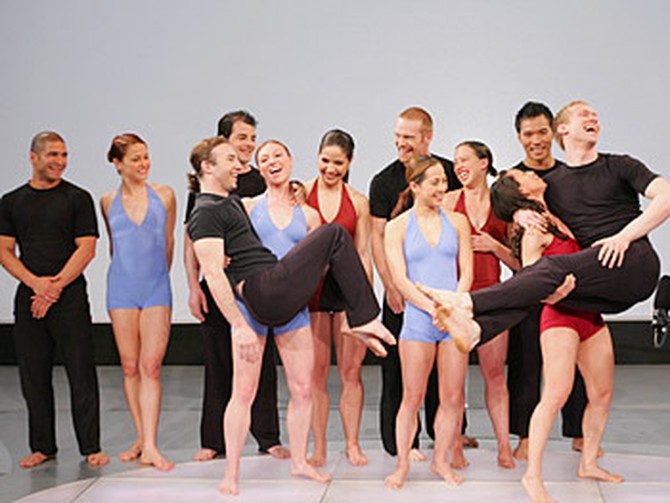
The men and women who make up Pilobolus don't spend their days lifting weights…they lift each other!
Andy, the co-captain of the dance company, says the intense training sessions have whipped him into shape. "Before coming into Pilobolus, I played football and wrestled, and this is absolutely the top shape that I've ever been in," he says.
The guys aren't the only ones doing the heavy lifting. The ladies may be small, but they're also very strong! When they aren't on tour, Jonathan says the dancers train every day from 9 a.m. until 5 p.m.
Find out when Pilobolus will perform in a town near you!
Andy, the co-captain of the dance company, says the intense training sessions have whipped him into shape. "Before coming into Pilobolus, I played football and wrestled, and this is absolutely the top shape that I've ever been in," he says.
The guys aren't the only ones doing the heavy lifting. The ladies may be small, but they're also very strong! When they aren't on tour, Jonathan says the dancers train every day from 9 a.m. until 5 p.m.
Find out when Pilobolus will perform in a town near you!
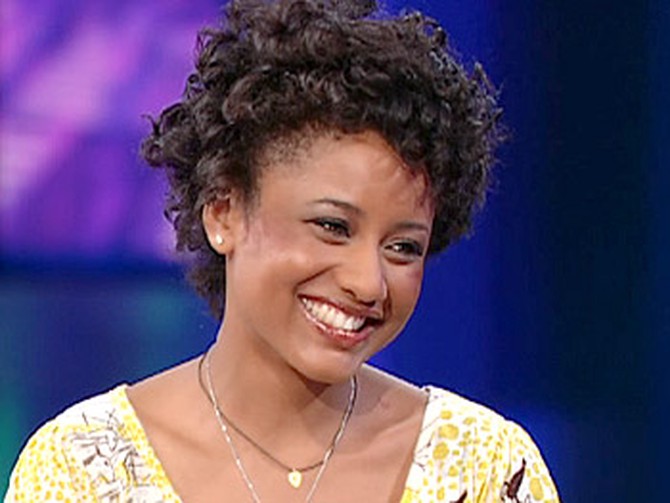
For more than four years, singer-songwriter Susan Cagle has been making a name for herself throughout New York City's subway system—surprising commuters with her impromptu performances. But, life wasn't always so sweet for this soulful singer.
Growing up, Susan says she was raised in a very restrictive religious cult. "We had to do everything that they told us to do," she says. "We were only allowed to read the Bible or other religious publications that were written by the organization."
After years of feeling like a prisoner in her own life, Susan says she escaped that world and started on a path of her own. "It was like, 'Oh my gosh, I've got these feelings inside me I've always felt, a hunger for knowledge, for the world,' and I was told it was wrong," she says. "Once I started reading, it was like, 'Wow, I need to get out of this.'"
Susan moved to New York City, where she took her love of singing to the streets. "Basically, the subway allowed me to connect with people. In the subways I wasn't alone," she says. "I realized, looking around at all the people rushing by me, that everybody has their own story. … It made me realize that, wow, I don't have to use my background as an excuse to not do anything with my life."
Growing up, Susan says she was raised in a very restrictive religious cult. "We had to do everything that they told us to do," she says. "We were only allowed to read the Bible or other religious publications that were written by the organization."
After years of feeling like a prisoner in her own life, Susan says she escaped that world and started on a path of her own. "It was like, 'Oh my gosh, I've got these feelings inside me I've always felt, a hunger for knowledge, for the world,' and I was told it was wrong," she says. "Once I started reading, it was like, 'Wow, I need to get out of this.'"
Susan moved to New York City, where she took her love of singing to the streets. "Basically, the subway allowed me to connect with people. In the subways I wasn't alone," she says. "I realized, looking around at all the people rushing by me, that everybody has their own story. … It made me realize that, wow, I don't have to use my background as an excuse to not do anything with my life."
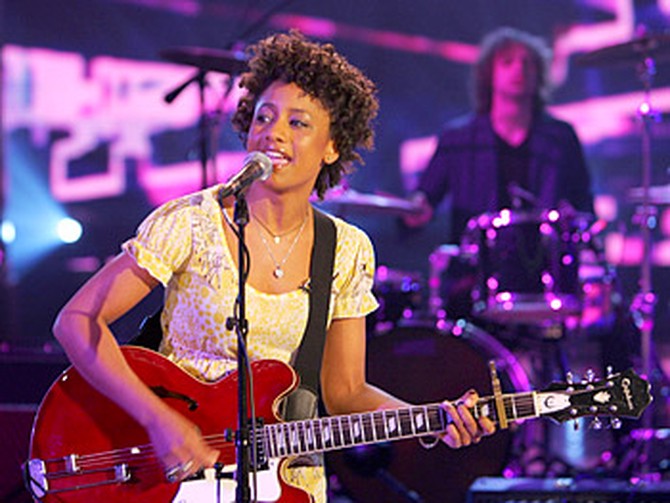
For years, Susan performed for anyone who would listen…and then fate stepped in. Music producer Jay Levine caught her act and soon the pair started writing music together. "He's been with me through every step of the way," she says.
One of Susan's signature songs is titled "Dear Oprah"—and when Oprah heard it for the first time, she knew she wanted to meet Susan in person! The song originated from a letter Susan wrote to Oprah when she was 17—but never sent! "Your story always inspired me, your background, how you were brought up. You're a self-made person," Susan tells Oprah. "It was really just me pouring out my heart in my diary to you."
So, what is life like for Susan now? "I just feel happy to be able to walk down the street and know that I'm free," she says.
One of Susan's signature songs is titled "Dear Oprah"—and when Oprah heard it for the first time, she knew she wanted to meet Susan in person! The song originated from a letter Susan wrote to Oprah when she was 17—but never sent! "Your story always inspired me, your background, how you were brought up. You're a self-made person," Susan tells Oprah. "It was really just me pouring out my heart in my diary to you."
So, what is life like for Susan now? "I just feel happy to be able to walk down the street and know that I'm free," she says.
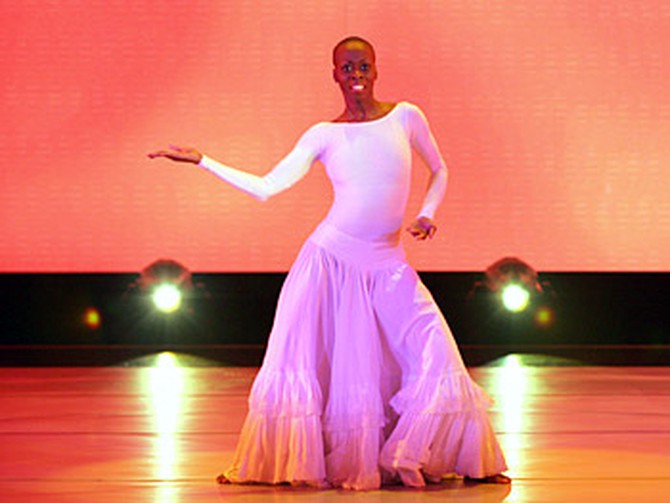
As a performer in Alvin Ailey's elite dance company in New York, Dwana Smallwood is recognized as one of the best modern dancers since Mikhail Baryshnikov and Judith Jamison.
Dwana says she's wanted to be a dancer since she was 5 years old. "I'm more of the self I'm supposed to be than the self that I pretend to be walking around," she says. "When I'm dancing, it's the only part of myself I recognize."
Here she performs "Cry," a legendary dance—created by Judith Jamison—that represents a woman's journey from slavery to triumph.
Dwana says she's wanted to be a dancer since she was 5 years old. "I'm more of the self I'm supposed to be than the self that I pretend to be walking around," she says. "When I'm dancing, it's the only part of myself I recognize."
Here she performs "Cry," a legendary dance—created by Judith Jamison—that represents a woman's journey from slavery to triumph.
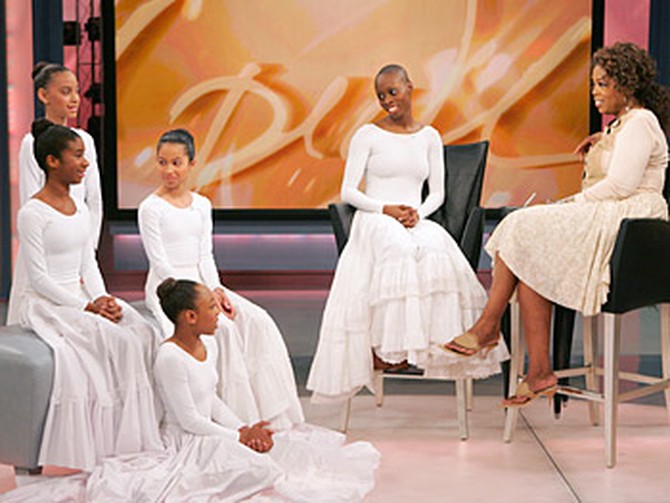
Dwana says learning "Cry" from its legendary creator was a dream come true. "I was so enamored by Judith, the story, the music, everything," she says. "I just felt like I need to do that piece."
And she says performing it with young dancers Desiree, Whitney, Naja and Liana was a pleasure, as well. "I think it's really important that people my age … bridge the gap between us, because it's not that far," Dwana says. "I still feel the excitement they feel about today. And, I mean, I'm still a little girl in heart. I still love it and I'm passionate about it."
"I'm just so honored to be dancing with her," Liana says. "She's a very big inspiration for me."
And she says performing it with young dancers Desiree, Whitney, Naja and Liana was a pleasure, as well. "I think it's really important that people my age … bridge the gap between us, because it's not that far," Dwana says. "I still feel the excitement they feel about today. And, I mean, I'm still a little girl in heart. I still love it and I'm passionate about it."
"I'm just so honored to be dancing with her," Liana says. "She's a very big inspiration for me."
Published 01/01/2006

